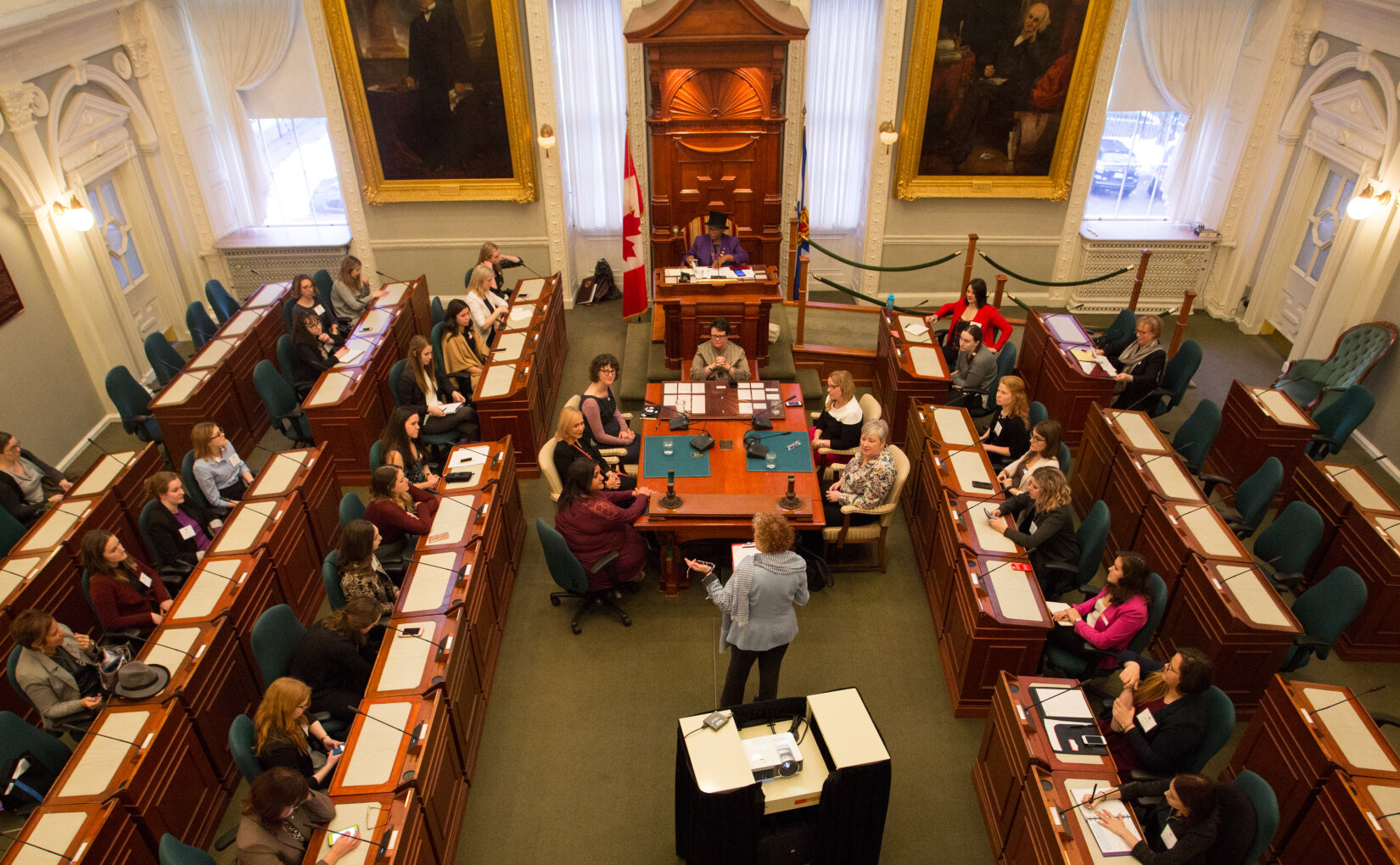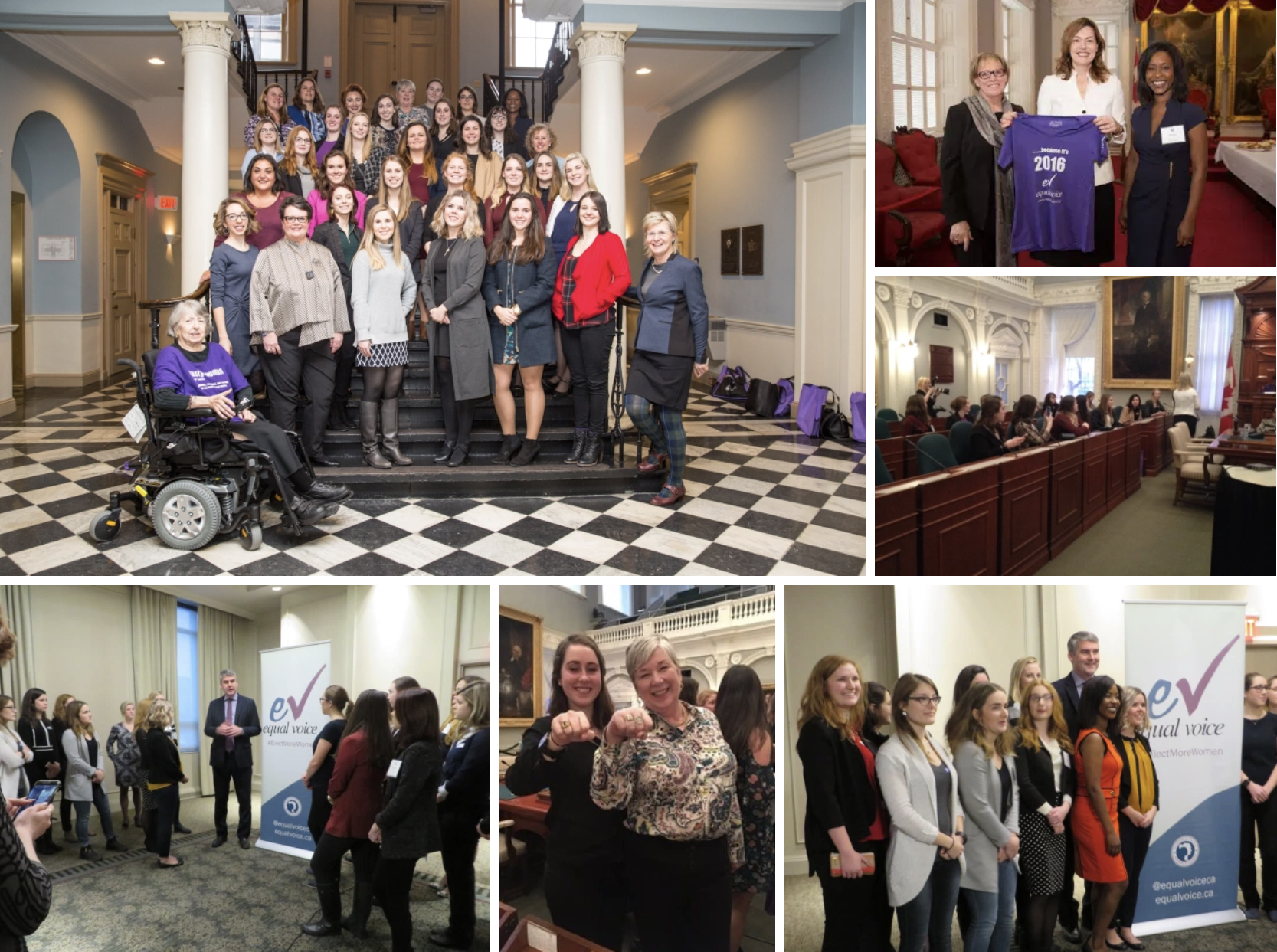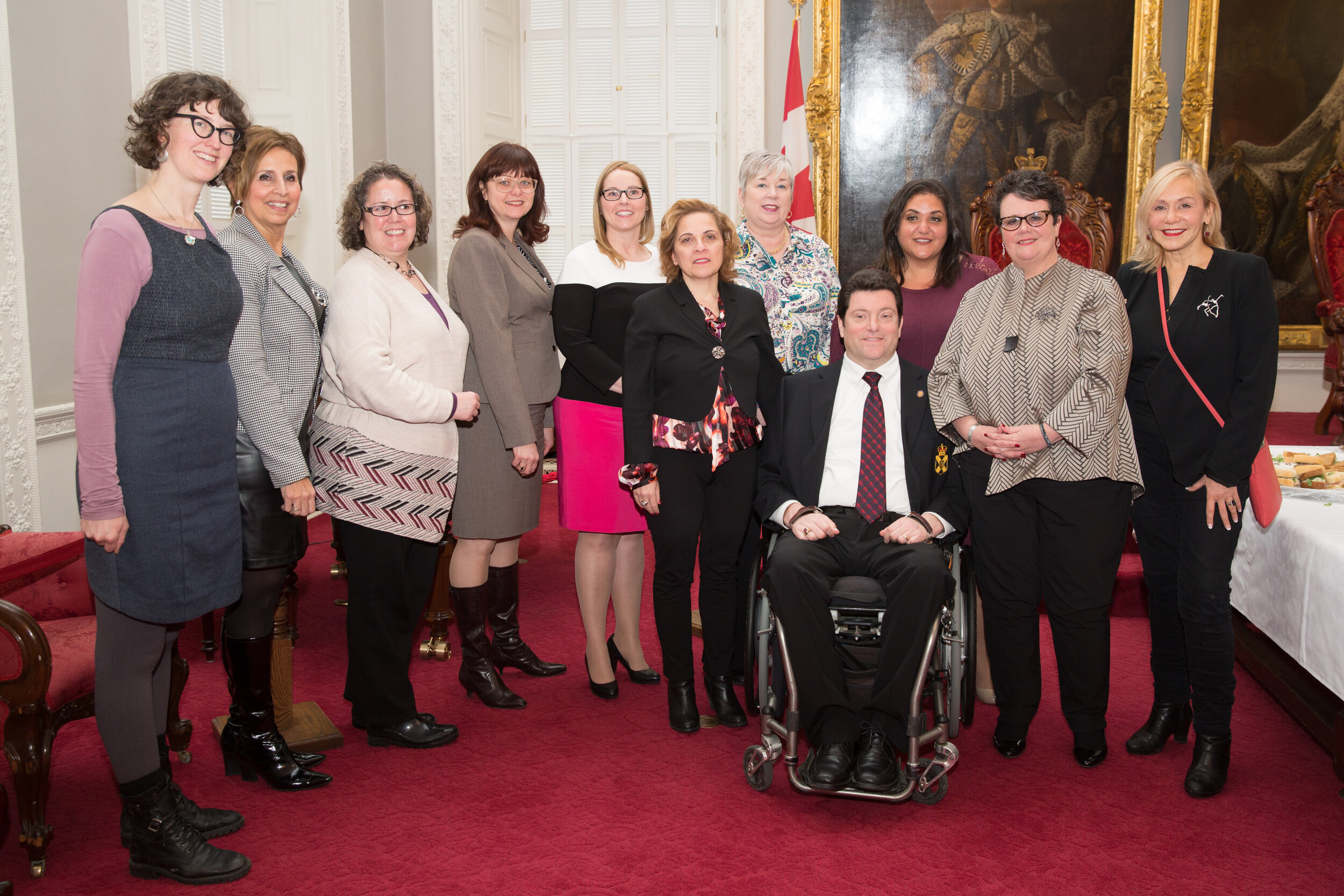Daughters of the Vote
January 2017
In partnership with the NS Advisory Council on the Status of Women, Equal Voice NS and Equal Voice Canada
Funded by: Equal Voice
In January 2017, Be the Peace Institute partnered with the Nova Scotia Advisory Council on the Status of Women and Equal Voice Nova Scotia, to host some of the 68 young women, aged 18-23, who applied to be a delegate for the Daughters of the Vote national initiative.
The Daughters of the Vote events are sponsored biennially by Equal Voice, a national multi-partisan non-profit dedicated to gender parity in politics through electing and supporting women at all levels of Canadian political office. (on the website, can these hyperlinks be more obvious?? It’s not easy to tell since the colour is very close to black… maybe underlined?). Their ultimate goal is “to ensure women are dynamic and equal participants at every political decision making table in the country.”
The young women delegates, selected from every federal riding, participate in political leadership events and take their respective MP’s seats in Parliament during a historic sitting of the House of Commons in March during International Women’s Day.
This event marked the 100th anniversary of the right to vote for some women in Canada, and the 150th birthday of Canada.
Our Executive Director (Sue Bookchin) facilitated the event, which included the Premier Stephen McNeil, Senator Wanda Thomas Bernard, Bernadette Jordan, MP for South Shore St. Margaret’s, Christine Hanson, CEO of the NS Human Rights Commission, and female Members of the Legislative Assembly, including sitting Cabinet Ministers.
Thank you to everyone who participated – it was an inspiring and hopeful day!
In 1916, some women in only three Canadian provinces (Alberta, Manitoba and Saskatchewan) won the right to vote in provincial elections. A year later, that same right was extended to a limited number of women in federal elections. In 1922, all the Canadian provinces, except Quebec, had granted full suffrage to white and black women.
Following these partial victories, it would take almost 45 years for the majority of women living in Canada, including indigenous women living on federal reserves, to win the right to vote. It was not until 1960 that suffrage (in Federal elections) was extended to First Nations women (and men) without requiring them to give up their treaty status.










